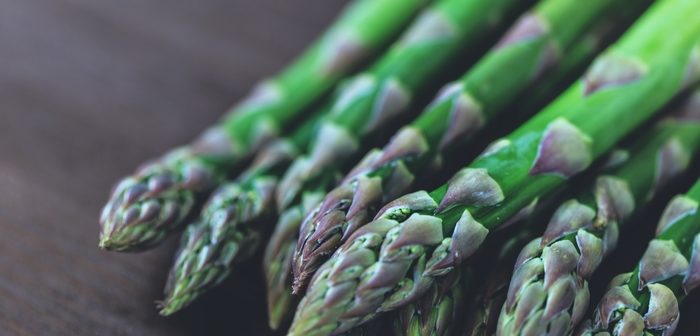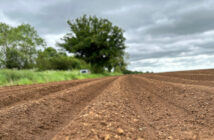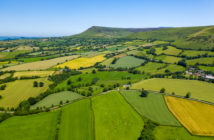As the country launches into British asparagus season, Arysta LifeScience’s technical lead for vegetables, Alison Casey, discusses the ins and outs of asparagus, and its surge in popularity. Alison is married to Tim, an asparagus and leek grower from Lincolnshire.
“Each year as we near St. George’s Day, pressure mounts for the few who like us, choose to commercially grow British asparagus. Most consumers understand that the season can be short – sometimes just eight weeks, but with readily available year-long imports, it’s even more crucial that we produce a perfect Class 1 crop.
Tim’s family began growing asparagus eight years ago, when it was up-and-coming and relatively unknown. There aren’t many commercial growers and you really need a sandy-loam soil, of which we are lucky to have over in the Lincolnshire fens.
Fast forward to 2018 and the spring hasn’t been the kindest, with an abundance of snow and wintery weather. For a crop that’s harvested in the spring, this meant that cultivations such as flailing were delayed, because the fields were too wet.
Crop protection products for asparagus are limited, so implementing cultural control methods for weeds, pests and diseases, alongside correct use of what chemistry is available, is crucial. In terms of what is currently available, azoystrobin (Zoxis®) will control diseases such as stemphyllium, whereas cypermethrin (Cythrin 500®) is a product registered for the control of asparagus beetle.
Once the asparagus is ready, the work really begins. Fields are walked every day to check whether the crop has reached the optimum size, with each spear picked by hand. During warm weather, this can mean two cuts a day.
This hand-picking makes asparagus labour intensive. We employ seasonal workers to harvest our asparagus crop, but finding passionate enthusiastic people for such short intense periods can prove difficult. It also makes running a commercially viable business even harder.
During the past few years, the popularity of asparagus has exploded. Thanks to the discounters, it’s no longer seen as such a premium ‘foodie’ ingredient. It’s widely available and there is a greater understanding of its nutritional value and how to prepare it correctly. The health benefits are vast, from promoting healthy bacteria in the gut to boosting the immune system. It’s also a favourite for fitness fans because it’s so nutritious yet easy to prepare.
Due to the short season, British asparagus has long been regarded as a special, unique crop and has been marketed accordingly. It’s a real success story – many celebrity and restaurant chefs incorporate asparagus into seasonal themed recipes, and consumers have bought into that.
We’re proud to have been a small part of the journey for asparagus, from relatively unknown to consumer favourite. It also works well for us because it’s harvested in the spring, meaning we can switch our focus to growing leeks in the autumn.”




